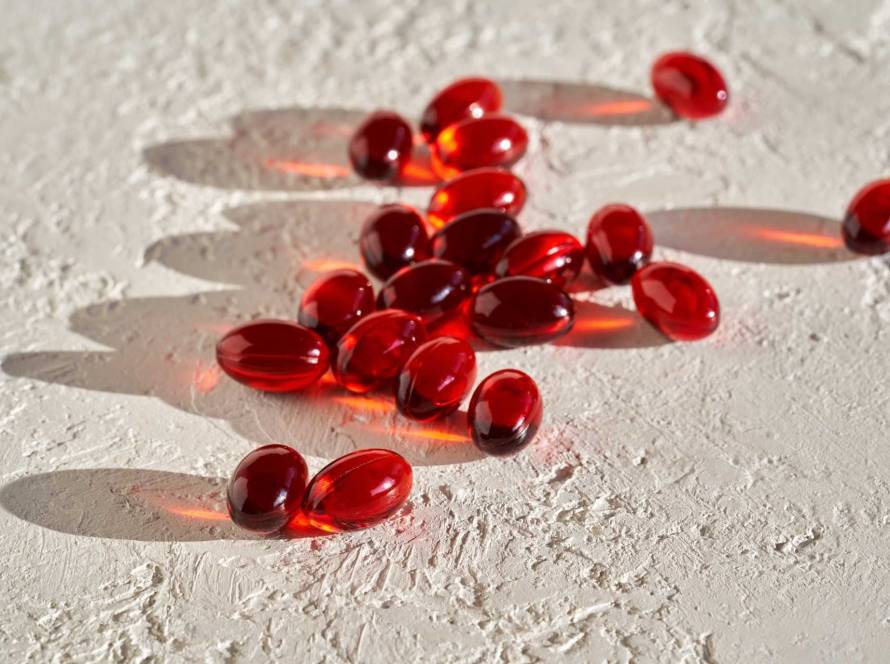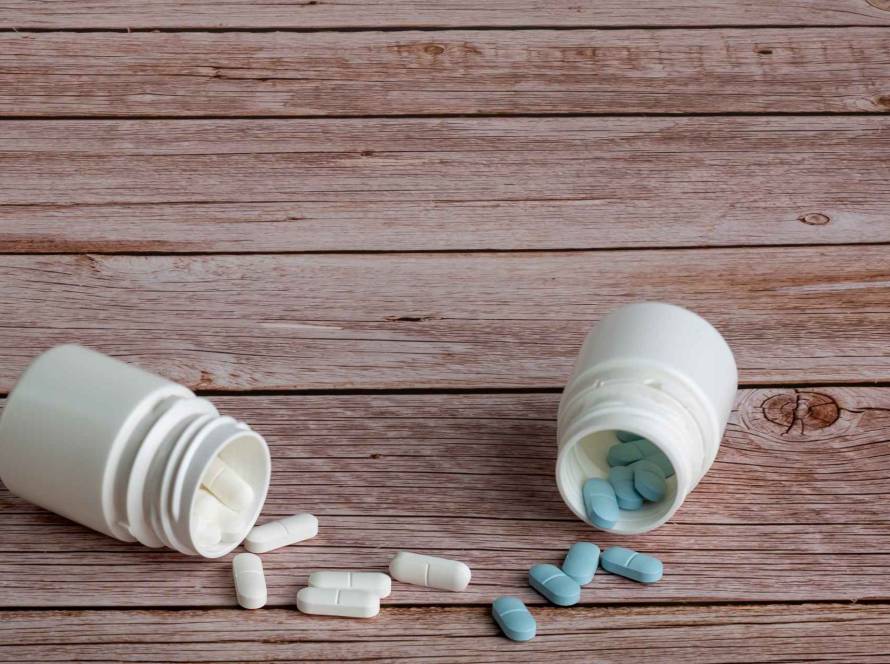Creatine isn’t just for athletes and bodybuilders. This natural amino acid provides benefits that go way beyond the gym. Research shows older adults who take creatine maintain better muscle strength and sharper cognitive function. Furthermore, their bone density improves more than those who just exercise.
Does creatine help with aging? Let’s dive into how creatine works at the cellular level and see how it affects different aspects of aging. You’ll get practical recommendations to add it to your longevity strategy.
What is creatine and how does it work?
Creatine is a remarkable nitrogenous organic compound that helps produce cellular energy. Let’s explore its basic nature and mechanisms to understand why it’s so significant for healthy aging.
Natural production in the body
Your body makes creatine through a complex process that happens in the liver, kidneys and pancreas. Two amino acids, glycine and L-arginine, start this natural synthesis. The process has two steps: first creating guanidinoacetate, then turning it into creatine through methylation.
Our bodies get creatine from two sources. We produce about 1-2 grams daily internally and the rest comes from food, especially red meat and seafood. This two source system will give a steady supply for important bodily functions.
Role in cellular energy
The most important way creatine helps is by acting as an energy buffer in cells. This happens through the phosphocreatine system. Once creatine enters cells, it becomes phosphocreatine, which quickly provides energy.
The system works as the quickest way to shuttle energy because phosphocreatine moves faster than adenosine triphosphate (ATP). The creatine kinase enzyme coordinates this process by converting creatine to phosphocreatine and back, which keeps energy flowing steadily.
Basic functions
Your body places creatine strategically, with about 95% in skeletal muscle. The other 5% goes to tissues that need lots of energy, including:
- Brain tissue for cognitive function;
- Heart muscle for cardiovascular health;
- Testes and other organs with significant energy needs.
Creatine does more than just produce energy. It helps muscles recover faster by activating satellite cells. It also boosts anabolic hormone production and cell hydration, which might help muscles grow and stay strong.
Creatine also affects how your brain works by maintaining phosphocreatine levels needed for thinking. Research shows mice without brain creatine kinase learned more slowly and had different hippocampal connections.
How creatine fights aging at the cellular level
Creatine stands out as a powerful defender against aging at the cellular level through multiple sophisticated mechanisms. Scientists have discovered its vital role in maintaining cellular health and longevity.
Impact on mitochondrial function
Creatine has a direct influence on mitochondrial health by protecting mitochondrial DNA (mtDNA) from mutations. Research shows that creatine supplementation helps normalize mitochondrial mutagenesis and functional impairment in cells exposed to environmental stressors. This protection extends to vital cellular processes, as creatine helps maintain optimal ATP levels in cells affected by mitochondrial dysfunction.
Creatine gets more and thus encourages more mitochondrial biogenesis, a complex process that initiates mtDNA replication and expression of mitochondrial proteins. The process works through activating key regulators:
- PGC-1α (master regulator of mitochondrial biogenesis);
- Nuclear respiratory factor 1 (NRF-1);
- Mitochondrial DNA transcription factor A (TFAM).
Research confirms that creatine supplementation combined with physical activity increases all factors of mitochondrial biogenesis.
Protection against oxidative stress
Creatine’s role in curbing oxidative stress represents another vital aspect of its anti-aging properties. It protects cells from oxidative damage through both direct and indirect mechanisms. Studies have found that creatine supplementation decreases oxidative DNA damage and lipid peroxidation.
Scientists have proven that creatine supplementation substantially reduces markers of cellular aging. It decreases lipoperoxidation in tissues of all types and exhibits radioprotective effects, including protecting against DNA damage. This protection becomes especially important as oxidative stress increases with age, among other decreases in natural antioxidant enzymes like superoxide dismutase (SOD) and glutathione peroxidase (GPX).
4 key benefits of creatine
Research shows that creatine does much more than boost athletic performance. Its benefits help healthy aging and work on many parts of the body.
Muscle strength and mass
Studies prove that creatine makes a big difference in muscle health. Creatine supplementation increases lean body mass and reduces body fat percentage and mass more than resistance training alone.
Clinical trials back up creatine’s muscle building power. Women who combined creatine with strength training built 60% more lean mass.
Brain function
Creatine’s effects on the brain health are impressive. A meta-analysis showed it helped people remember better. Older adults between 66-76 years saw the biggest improvements. The research shows that creatine helps with:
- Short term and working memory;
- Intelligence and reasoning;
- Faster thinking during tasks;
- Better mental endurance.
People who take creatine end up with 8.7% more phosphocreatine in their brains. This extra brain energy helps older adults think better, especially those dealing with age related memory issues.
Heart health
Your heart needs creatine too. A clinical study of people with chronic heart failure found that taking high doses of creatine (20 grams daily) led to:
- More energy rich creatine phosphate in muscles;
- Up to 21% better exercise performance;
- Improved heart function overall.
Bone density
Taking creatine, especially with resistance training, might:
- Make bones stronger;
- Slow down bone loss;
- Help with bone turnover;
- Build stronger femoral shafts.
Studies found that older men taking about 8 grams of creatine daily while resistance training had higher levels of bone mineral content in their arms.
How to use creatine for longevity
You need to understand the best forms, dosages and timing strategies to get the most anti-aging benefits from creatine. Let’s look at how to add this powerful molecule to your longevity routine.
Best types of creatine
Creatine monohydrate stands as the gold standard among all forms in terms of bioavailability, efficacy and safety. This form gives you better benefits because it has:
- Proven effectiveness in clinical studies;
- Budget-friendly compared to other variants;
- A solid safety record in research.
Micronized creatine monohydrate is another good option that dissolves better in water.
Optimal dosage for anti aging benefits
Based on the best available evidence, the ingestion of 20 grams per day of creatine monohydrate for 5 days or 3-5 grams per day for about 30 days will maximally increase muscle creatine.
Post menopausal women get the best results with higher doses of 0.3 grams per kilogram of body weight daily for at least seven straight days. This means about 20 grams daily for most adults.
How and when to take creatine for maximum effect
The right timing can boost your creatine benefits. Your body absorbs creatine best about 30 minutes after you take it. Taking it around your workout time can maximize its effects.
Recent research suggests post workout creatine works better than before because of:
- More blood flow to muscles;
- Better creatine transport activation;
- Improved absorption kinetics.
In addition, it is also proven that consuming creatine with carbohydrates can increase its absorption compared to consuming creatine alone. If you don’t exercise regularly, taking creatine with meals helps your body absorb it steadily.
Creatine offers benefits that extend well beyond athletic performance, playing a significant role in promoting longevity. Clinical trials reveal that creatine enhances muscle strength, cognitive function, heart health and bone density, key areas that often decline with age. These effects are particularly valuable for older adults, as creatine helps counteract age related deterioration, supporting healthier aging and improving overall quality of life.


